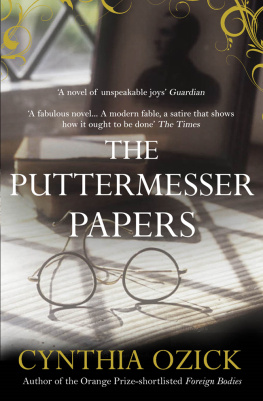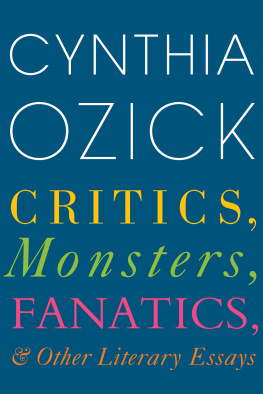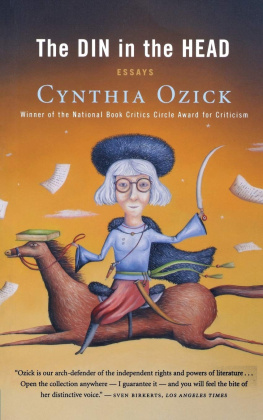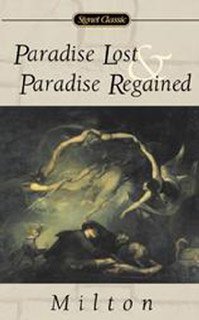THE PUTTERMESSER PAPERS
Fiction by Cynthia Ozick:
Foreign Bodies
Dictation
Heir to the Glimmering World
The Puttermesser Papers
The Shawl
The Messiah of Stockholm
The Cannibal Galaxy
Levitation: Five Fictions
Bloodshed and Three Novellas
The Pagan Rabbi and Other Stories
Trust

First published in the United States of America in 1997 by
Alfred A. Knopf, Inc.
This edition published in Great Britain in 2014 by Atlantic Books, an
imprint of Atlantic Books Ltd.
Copyright Cynthia Ozick, 1997
The moral right of Cynthia Ozick to be identified as the author of this work has been asserted by her in accordance with the Copyright, Designs and Patents Act of 1988.
All rights reserved. No part of this publication may be reproduced, stored in a retrieval system or transmitted in any form or by any means, electronic, mechanical, photocopying, recording or otherwise, without the prior permission of both the copyright owner and the above publisher of this book.
This novel is entirely a work of fiction. The names, characters and incidents portrayed in it are the work of the authors imagination and not to be construed as real. Any resemblance to actual persons, living or dead, events or localities, is entirely coincidental.
10 9 8 7 6 5 4 3 2 1
A CIP catalogue record for this book is available from the British Library.
Paperback ISBN: 978 0 85789 979 8
E-Book ISBN: 978 0 85789 980 4
Printed in Great Britain
Atlantic Books
An Imprint of Atlantic Books Ltd
Ormond House
2627 Boswell Street
London WC1N 3JZ
www.atlantic-books.co.uk
Contents
FOR
Elaine, Esther,
Francine, Gloria, Helen,
Johanna, Lore,
Merrill, Norma, Sarah,
Susan, Susanne
Flaubert does not build up his characters, as did Balzac, by objective, external description; in fact, so careless is he of their outward appearance that on one occasion he gives Emma brown eyes; on another deep black eyes; and on another blue eyes.
A comment by Dr. Enid Starkie,
quoted (disapprovingly) in Flauberts
Parrot, by Julian Barnes
THE
PUTTERMESSER
PAPERS

Puttermesser:
Her Work History,
Her Ancestry, Her Afterlife
Puttermesser and Xanthippe
Puttermesser Paired
Puttermesser and the Muscovite Cousin
Puttermesser in Paradise
PUTTERMESSER:
HER WORK HISTORY,
HER ANCESTRY,
HER AFTERLIFE
PUTTERMESSER WAS THIRTY-FOUR, A lawyer. She was also something of a feminist, not crazy, but she resented having Miss put in front of her name; she thought it pointedly discriminatory; she wanted to be a lawyer among lawyers. Though she was no virgin she lived alone, but idiosyncraticallyin the Bronx, on the Grand Concourse, among other peoples decaying old parents. Her own had moved to Miami Beach; in furry slippers left over from high school she roamed the same endlessly mazy apartment she had grown up in, her aging piano sheets still on top of the upright with the teachers X marks on them showing where she should practice up to. Puttermesser always pushed a little ahead of the actual assignment; in school too. Her teachers told her mother she was highly motivated, achievement oriented. Also she had scholastic drive. Her mother wrote all these things down in a notebook, kept it always, and took it with her to Florida in case she should die there. Puttermesser had a younger sister who was also highly motivated, but she had married an Indian, a Parsee chemist, and gone to live in Calcutta. Already the sister had four children and seven saris of various fabrics.
Puttermesser went on studying. In law school they called her a grind, a competitive-compulsive, an egomaniac out for aggrandizement. But ego was no part of it; she was looking to solve something, she did not know what. At the back of the linen closet she found a stack of her fathers old shirt cardboards (her mother was provident, stingy: in kitchen drawers Puttermesser still discovered folded squares of used ancient waxed paper, million-creased into whiteness, cheese-smelling, nesting small unidentifiable wormlets); so behind the riser pipe in the bathroom Puttermesser kept weeks worth of Sunday Times crossword puzzles stapled to these laundry boards and worked on them indiscriminately. She played chess against herself, and was always victor over the color she had decided to identify with. She organized tort cases on index cards. It was not that she intended to remember everything: situationsit was her tendency to call intellectual problems situationsslipped into her mind like butter into a bottle.
A letter came from her mother in Florida:
Dear Ruth,
I know you wont believe this but I swear its true the other day Papa was walking on the Avenue and who should he run into but Mrs. Zaretsky, the thin one from Burnside not the stout one from Davidson, you remember her Joel? Well hes divorced now no children thank God so hes free as a bird as they say his ex the poor thing couldnt conceive. He had tests hes O.K. Hes only an accountant not good enough for you because God knows I never forget the day you made Law Review but you should come down just to see what a tender type he grew into. Every tragedy has its good side Mrs. Zaretsky says he comes down now practically whenever she calls him long distance. Papa said to Mrs. Zaretsky well, an accountant, you didnt over-educate your son anyhow, with daughters its different. But dont take this to heart honey Papa is as proud as I am of your achievements. Why dont you write we didnt hear from you too long busy is busy but parents are parents.
Puttermesser had a Jewish face and a modicum of American distrust of it. She resembled no poster she had ever seen: she hated the Breck shampoo girl, so blond and bland and pale-mouthed; she boycotted Breck because of the golden-haired posters, all crudely idealized, an American wet dream in the subway. Puttermessers hair came in bouncing scallopslayered waves from scalp to tip, like imbricated roofing tile. It was nearly black and had a way of sometimes sticking straight out. Her nose had thick, well-haired, uneven nostrils, the right one noticeably wider than the other. Her eyes were small, the lashes short, invisible. She had the median Mongol lidone of those Jewish faces with a vaguely Oriental cast. With all this, it was a fact she was not bad-looking. She had a good skin with, so far, few lines or pits or signs of looseness-to-come. Her jaw was pleasinga baby jowl appeared only when she put her head deep in a book.
In bed she studied Hebrew grammar. The permutations of the triple-lettered root elated her: how was it possible that a whole language, hence a whole literature, a civilization even, should rest on the pure presence of three letters of the alphabet? The Hebrew verb, a stunning mechanism: three letters, whichever fated three, could command all possibility simply by a change in their pronunciation, or the addition of a wing-letter fore and aft. Every conceivable utterance blossomed from this trinity. It seemed to her not so much a language for expression as a code for the worlds design, indissoluble, predetermined, translucent. The idea of the grammar of Hebrew turned Puttermessers brain into a palace, a sort of Vatican; inside its corridors she walked from one resplendent triptych to another.















